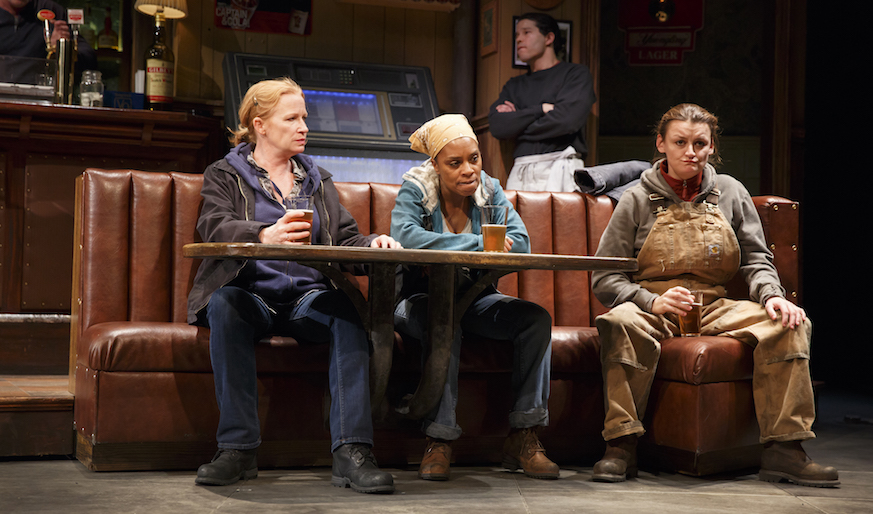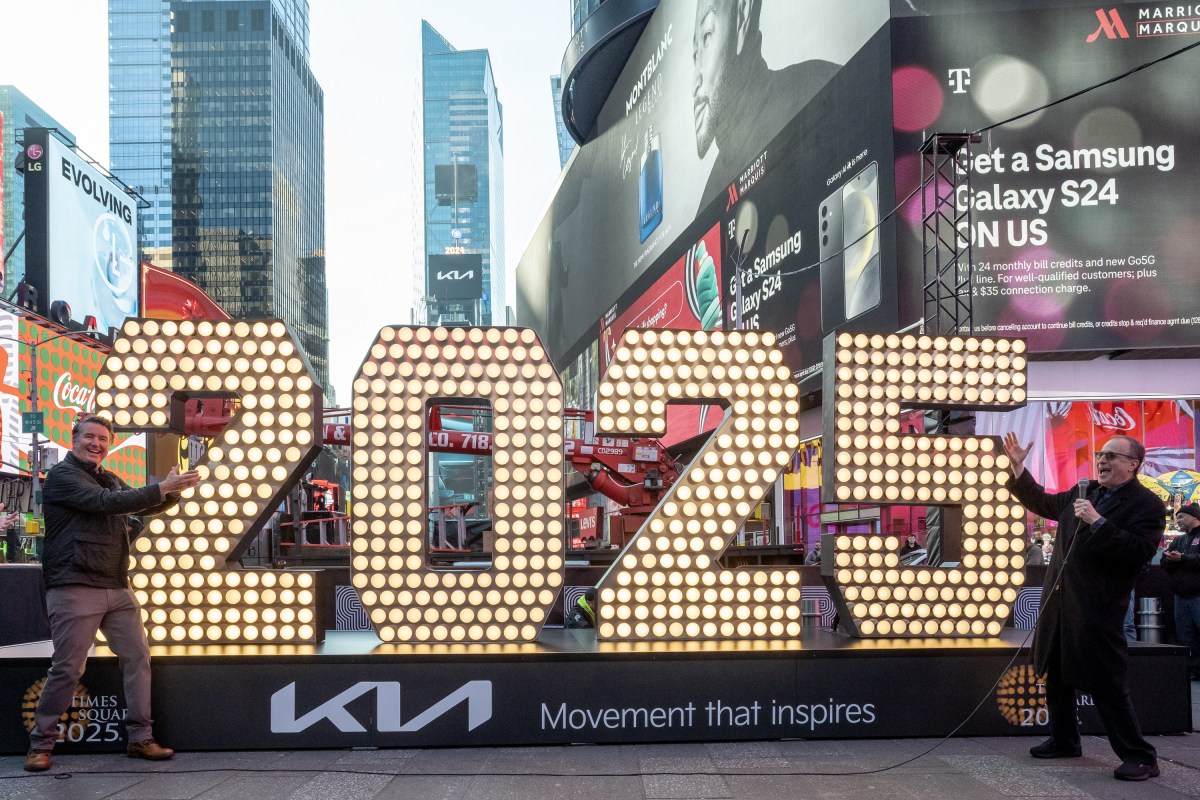In a sign of our times, George Orwell’s “1984” will kick off summer on Broadway.
The dystopian play, opening June 22 at the newly restored Hudson Theatre with Olivia Wilde and Tom Sturridge, has been enjoying a resurgence of interest since our world started bearing some eerie resemblances to the one in its pages.
It’s a sign of the activist streak that has come into the art world commenting on today’s socially and politically charged climate. Such productions have already taken over the off-Broadway scene, and are now getting bigger stages as audiences hunger to see the status quo challenged.
History Repeating
“Theater is always political,” says Paula Vogel, Pulitzer Prize winner for 1998’s “How I Learned to Drive” and playwright of “Indecent,” about a 1923 Broadway musical featuring a lesbian love story that got shut down for — you guessed it — indecency. “Newspapers tell us the facts; plays tell us the emotional truth. Censorship is a tool to shutter a free press. To deny plays about the current moment onstage, and promote ‘nonpolitical’ entertainment for entertainment’s sake, is a very political act.”
“Indecent,” now playing at the Cort Theater, is also a musical about another time when free speech and the arts were under fire in America. In 1923, police raided Broadway’s “God of Vengeance,” Sholem Asch’s play about two women falling in love. They arrested the all-Jewish cast for “obscenity” and suppressed the play for “immorality.”
“‘Indecent’ is about this moment in time, through the gaze of the 20th century,” Vogel says, citing a few of the piece’s eerily prescient themes: “the closing of the American border to Jewish refugees fleeing massacres in Europe, homophobia, anti-immigration laws and false news stories planted about international conspiracies.”
Social Strife
Striking the same all-too-real chord is “Sweat,” the play that won the Pulitzer Prize this year and just transferred to Broadway from the Public Theater (where “Hamilton” was born). Its story could also easily be ripped from our headlines: factory workers find their class and racial tolerance tested once layoffs begin.
Eugene Ionesco’s “Rhinoceros” had so much to say about our current moment, it’s been moved from its original opening date at the end of April to the fall for an expanded run. The absurdist play starts with a rumor that people are turning into rhinos. Soon, villagers are killing rhinos and ostracizing their sympathizers; but, as the beasts take over, the stragglers find themselves embracing the rhino lifestyle. “The Cost of Living,” opening May 16, depicts four utterly different people — rich, poor and unemployed; able-bodied, unwell and disabled — and how their pursuit of health and happiness differs as their lives intersect in modern-day America.
“‘History plays’ are always about the contemporary moment,” says Vogel. “History is a way we can achieve enough distance to encounter what we may be avoiding in our midst. We need access to the open stage, and the open heart of our audiences.”
Stop the Hate
“Right now, we have an accelerated rise in the fear of different lifestyles, different religions, people from other countries; right now, it seems many express that fear as hatred,” Vogel says. “We are sliding backwards in terms of ‘the other’ — anyone who does not fit the narrow description of Christian white male conservatives (another mythological construct). In other words, we are engaging in a propaganda warfare against the majority of people who live in the United States.”
But that’s exactly why it’s so important to continue staging even the most brutally bleak plays, in the hopes that they’ll spread these messages to as wide an audience as possible.
“We fear what we do not understand. We face what we do not know through engagement in the emotional truth of the arts,” says Vogel. “We need our tools of empathy and imagination more now than any other time.”























